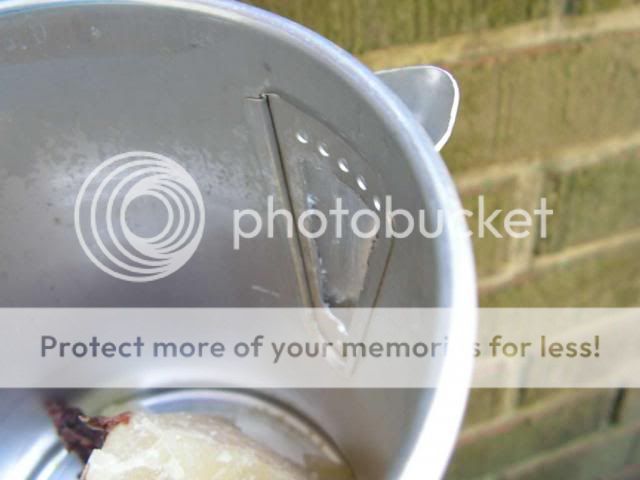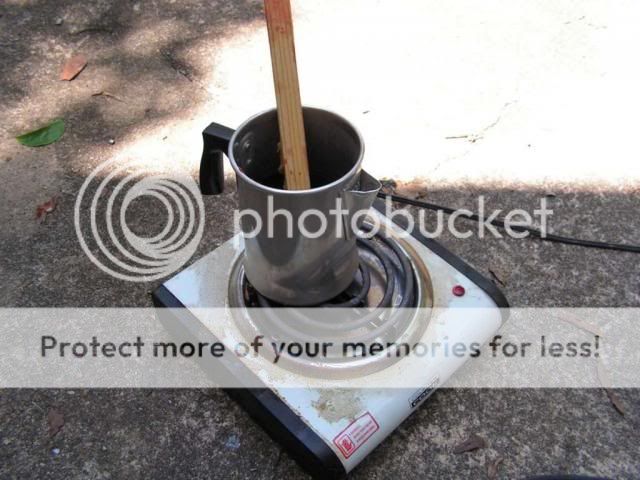It was pleasant outside today. About 60 degrees and bright sun. I thought it would be a good day to get outside and make some Ben's Red. ( I have always begged people not to make Ben's Red inside their home ! )
The usual recipe was used today with the exception of the 50% Beeswax was increased to 55%.
The usual formula :
50% beeswax
30% Red, Tacky Lucas High Temp Grease
10% Johnson's Paste Wax
5% Dexron II or Dexron III Trans. Fluid
5% STP Oil Treatment
DO NOT ATTEMPT TO MIX THESE INGREDIENTS TOGETHER INSIDE YOUR HOME !
I used an old wisk and gently stirred the mixture for about 20 - 25 minutes. No smoke, it is more about time and stirring than about high heat. High heat IS NOT your friend.
Here are photos :






The usual recipe was used today with the exception of the 50% Beeswax was increased to 55%.
The usual formula :
50% beeswax
30% Red, Tacky Lucas High Temp Grease
10% Johnson's Paste Wax
5% Dexron II or Dexron III Trans. Fluid
5% STP Oil Treatment
DO NOT ATTEMPT TO MIX THESE INGREDIENTS TOGETHER INSIDE YOUR HOME !
I used an old wisk and gently stirred the mixture for about 20 - 25 minutes. No smoke, it is more about time and stirring than about high heat. High heat IS NOT your friend.
Here are photos :









